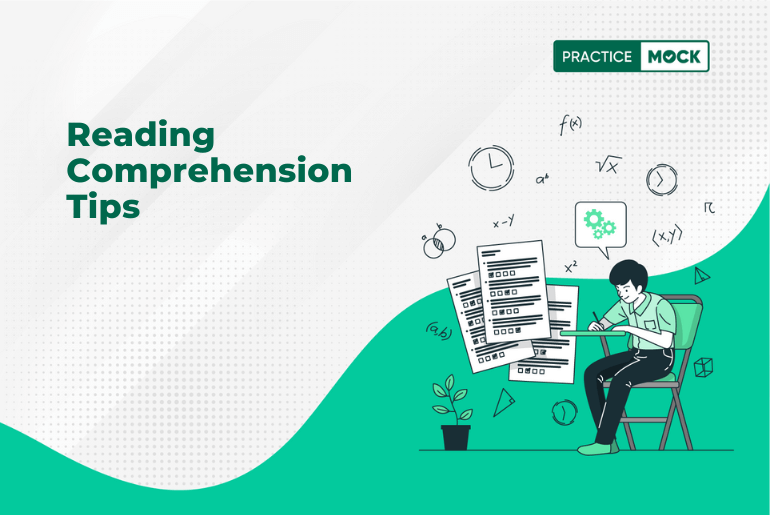Reading comprehension is a critical skill that goes beyond mere understanding; it involves interpreting, analyzing, and deriving meaning from written passages. Whether for academic exams, competitive tests, or daily life, effective reading comprehension is indispensable. This article provides essential tips to enhance your reading comprehension skills, making the process more efficient and rewarding.
Preview the Passage:
Before delving into the details, take a moment to preview the passage. Glance through the headings, subheadings, and any highlighted or bolded text. This initial preview helps set the context, allowing you to approach the passage with a basic understanding of its structure and main ideas.
Focus on Main Ideas:
While reading, prioritize identifying the main ideas of each paragraph. Understand the central theme and the author’s primary message. This focus on main ideas helps create a mental roadmap, making it easier to grasp the overall meaning of the passage.
Underline Key Information:
Develop the habit of underlining or highlighting key information as you read. This can include important dates, names, statistics, or any details that contribute to the central theme. Underlining aids in better retention and quick reference when answering questions or summarizing the passage.
Note Signal Words:
Pay attention to signal words that indicate the relationship between ideas. Words like “however,” “therefore,” and “moreover” signal shifts in the author’s argument or the introduction of contrasting viewpoints. Recognizing these signals enhances your understanding of the passage’s flow and structure.
Practice Active Reading:
Engage with the text actively by asking questions as you read. What is the author trying to convey? How do different paragraphs connect? Actively questioning the content promotes a deeper understanding and critical analysis, crucial components of effective reading comprehension.
Build a Strong Vocabulary:
A robust vocabulary is a cornerstone of reading comprehension. Familiarize yourself with a diverse range of words to grasp subtle nuances in the text. This not only aids in understanding the author’s intent but also enhances your ability to answer questions accurately.
Time Management:
Reading comprehension is often part of a timed test. Practice managing your time effectively during practice sessions. Develop a strategy for skimming through passages, identifying key points, and answering questions efficiently. Time management is a skill that can significantly impact your overall performance.
Diversify Your Reading Material:
Expand your reading repertoire to include various topics, genres, and writing styles. Exposure to diverse materials improves your adaptability to different writing structures and tones, ultimately refining your ability to comprehend information across a spectrum of subjects.
Review and Reflect:
After completing a reading comprehension exercise, take the time to review and reflect. Analyze any questions you answered incorrectly and understand why. This retrospective approach helps identify patterns in your comprehension challenges, allowing you to address them systematically.
Conclusion:
Reading comprehension is not just a test-taking skill; it’s a lifelong asset that contributes to effective communication and informed decision-making. By incorporating these tips into your reading routine, you can elevate your comprehension skills, making the process not only more efficient but also more enjoyable. Remember, the journey to mastering reading comprehension is gradual, and consistent practice is the key to success.
- Sign Up on Practicemock for Updated Current Affairs, Free Topic Tests and Free Mini Mocks
- Sign Up Here to Download Free Study Material
Free Mock Tests for the Upcoming Exams
- RRB PO 2024 Free Mock Test
- RRB Clerk 2024 Free Mock Test
- SSC MTS Free Mock Test
- SSC CHSL Free Mock Test
- SSC CGL Free Mock Test
- GATE Mechanical Free Mock Test
- GATE Civil Free Mock Test
- NABARD Gr. A Free Mock Test
- SBI Clerk Mains Free Mock Test
- SSC CPO Free Mock Test
- AFCAT Free Mock Test
- CAT Free Mock Test
- NIACL Assistant Free Mock Test
- UIIC AO Free Mock Test
- UIIC Assistant Free Mock Test
- GIC Assistant Manager Free Mock Test
- NICL AO Free Mock Test
- Free SSC Live Test
- UPSC CSAT Free Mock Test
- CDS-I Free Mock Test
- RRB ALP Free Mock Test


